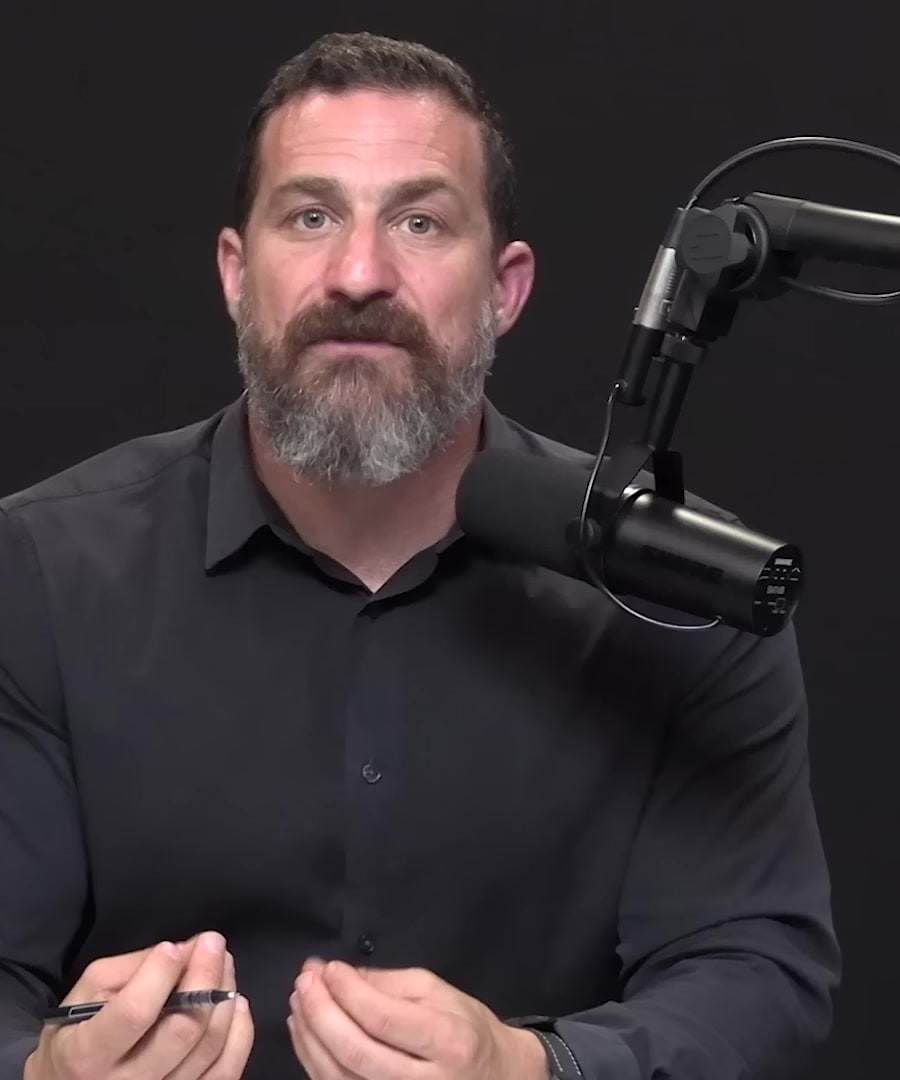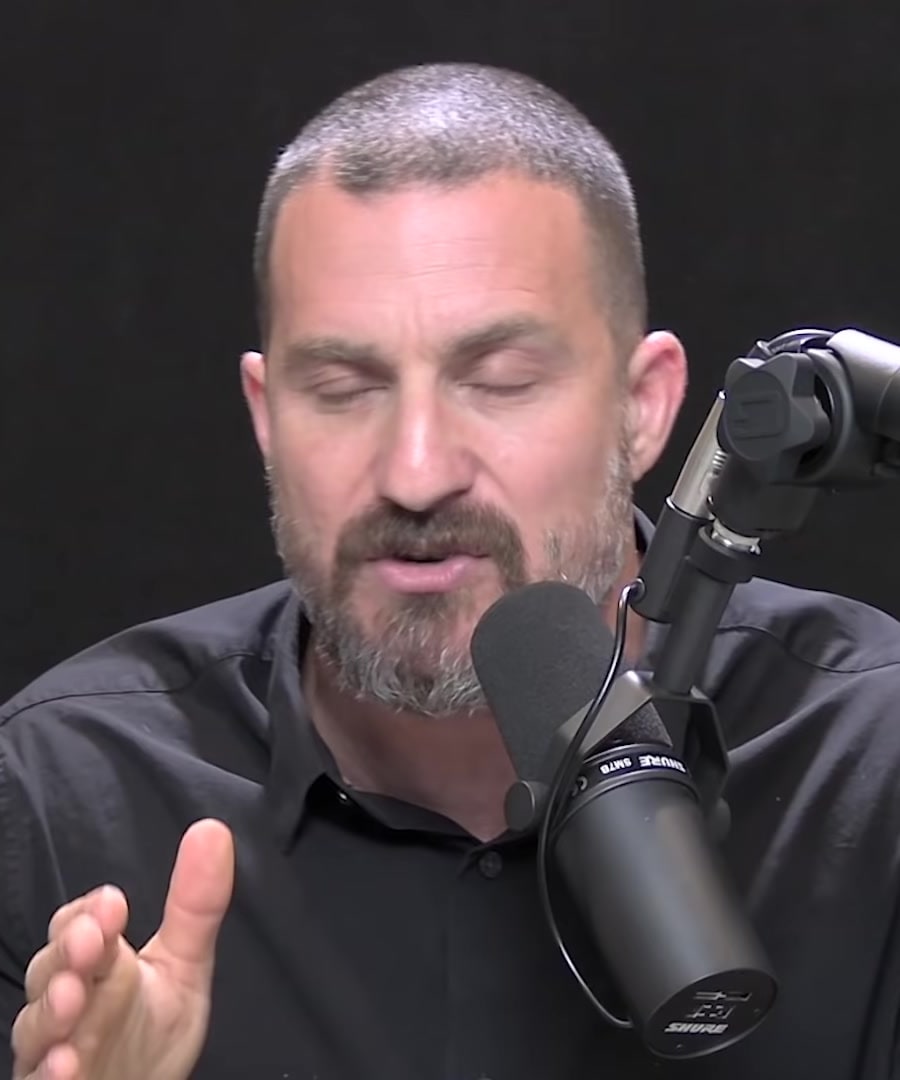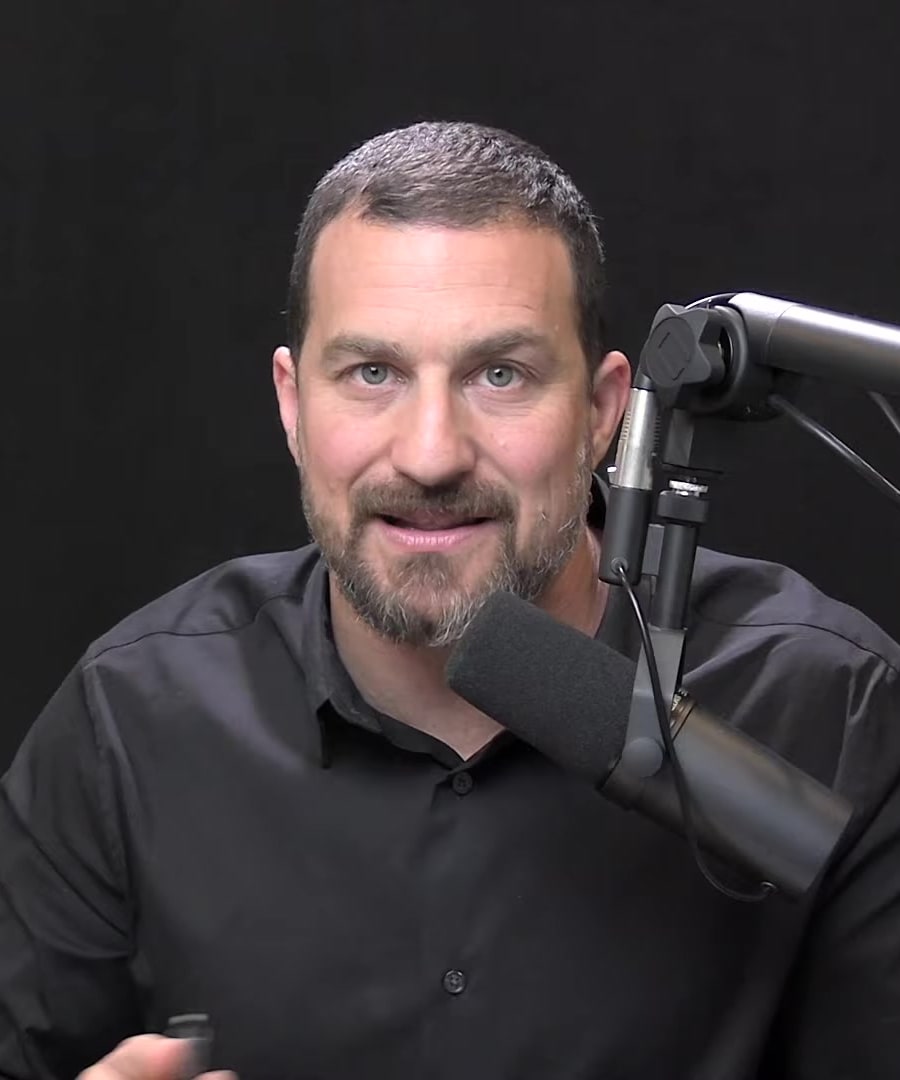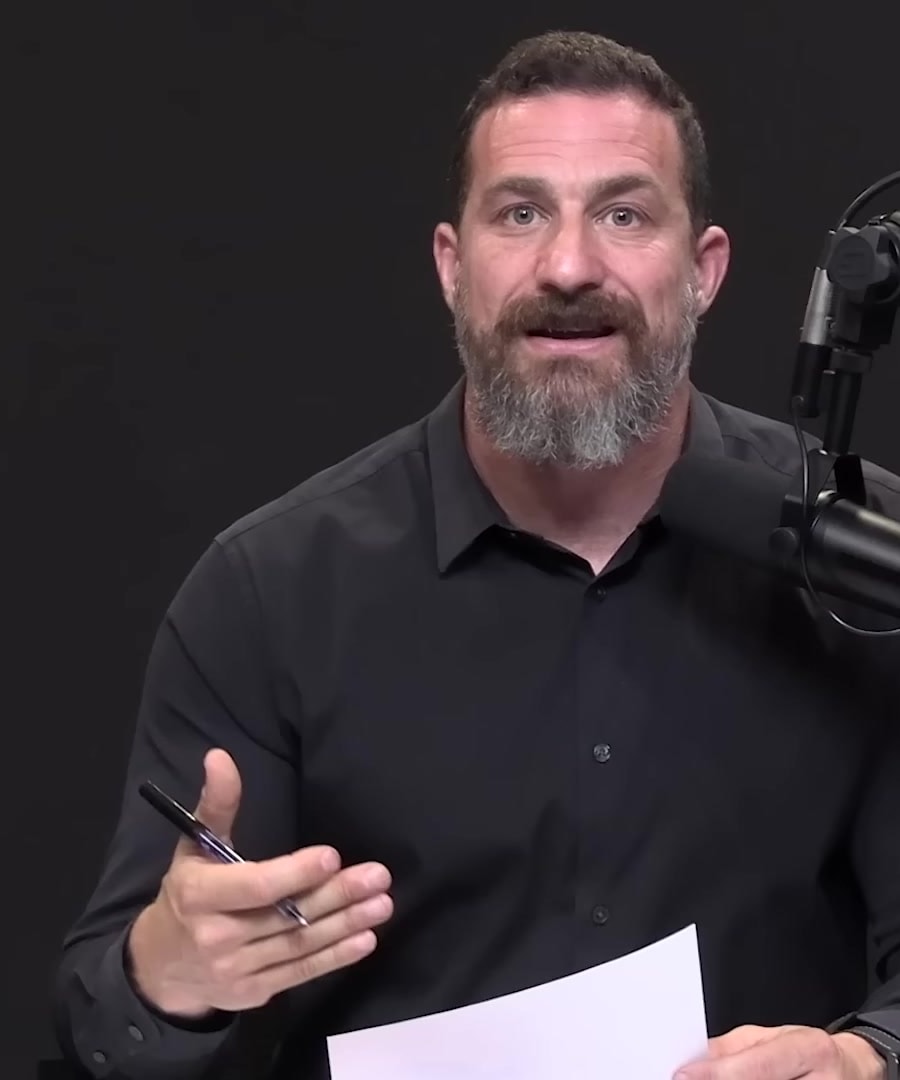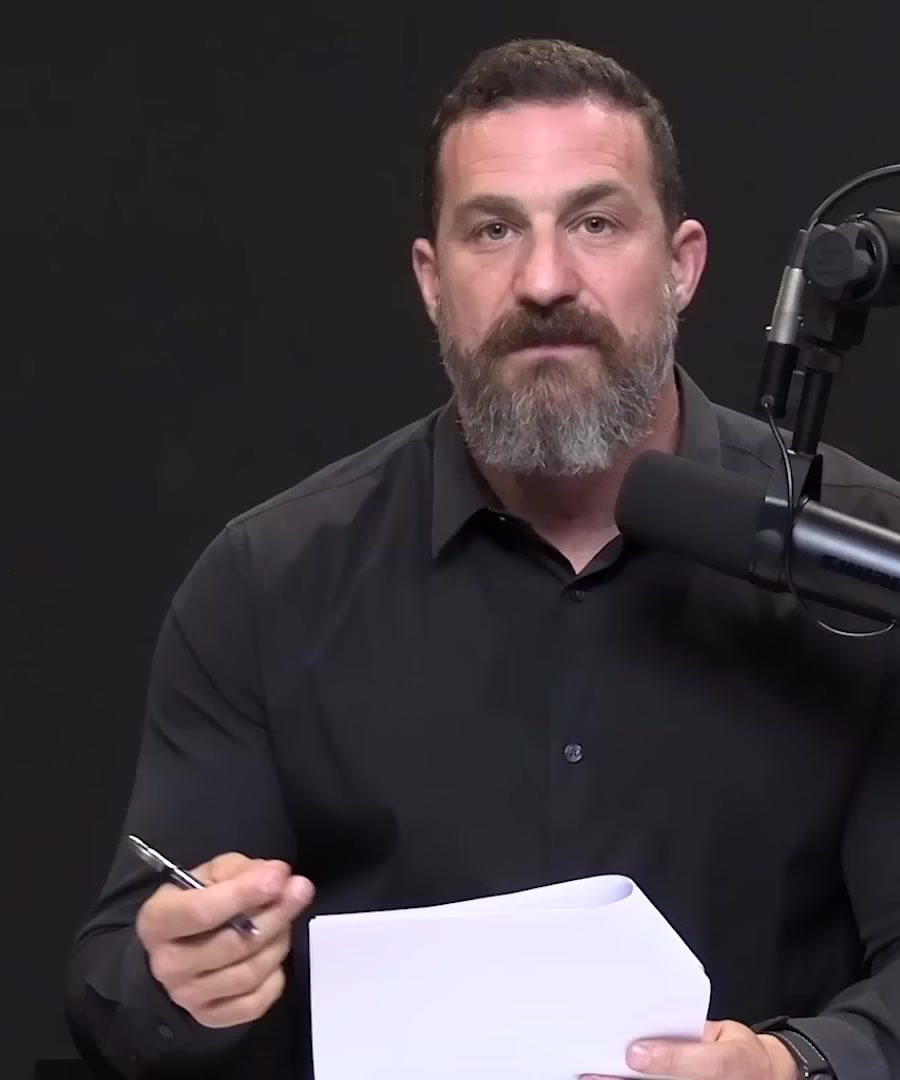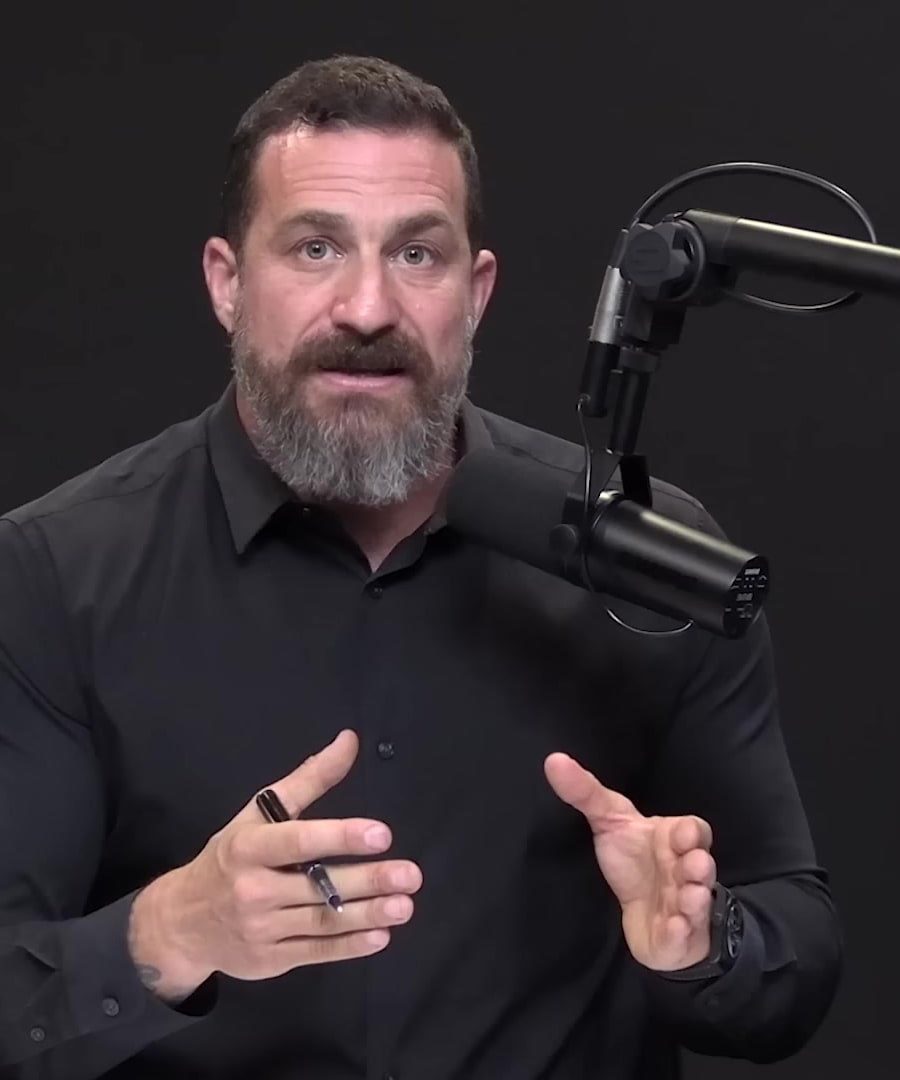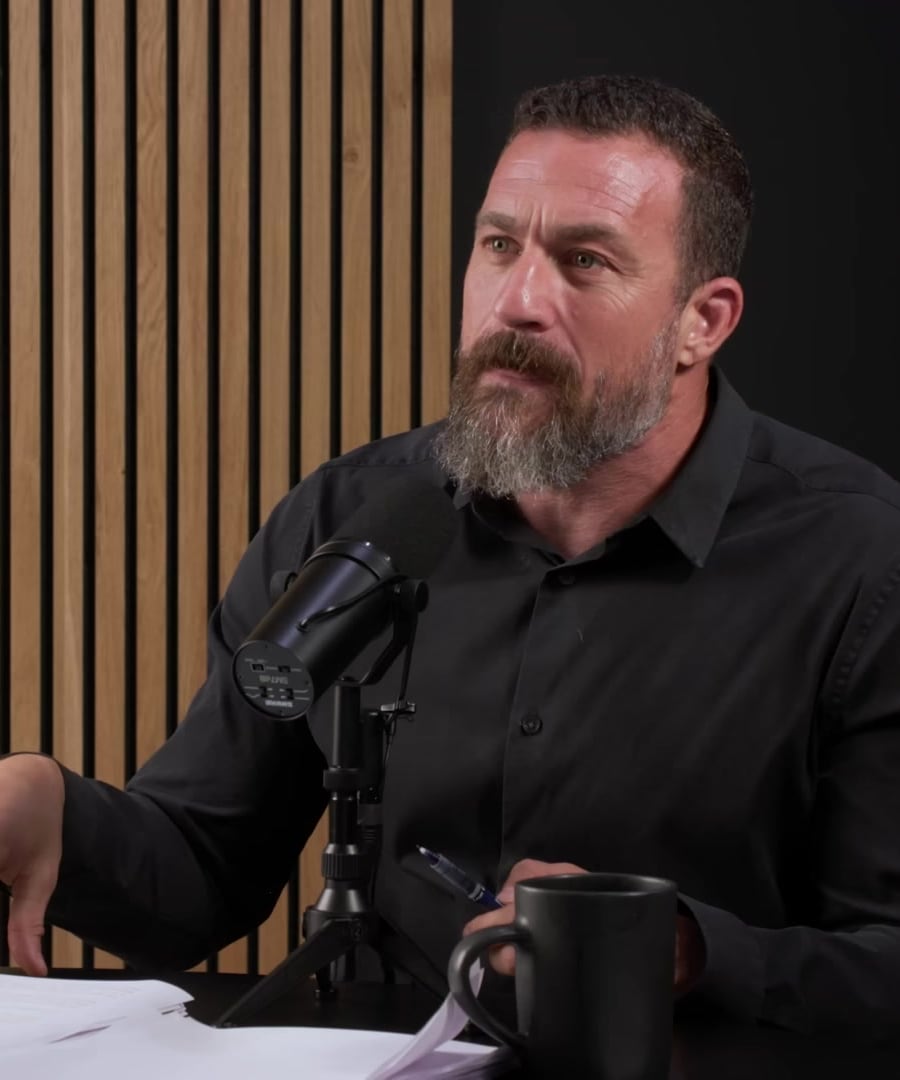Best protocols for reducing anxiety
Sources:
discusses several effective protocols for reducing anxiety:
-
Writing Protocols: Writing about traumatic or stressful experiences has been shown to significantly improve anxiety and other health metrics. This protocol involves writing about such experiences for four sessions, leading to long-lasting benefits for mental and physical health 1.
-
Breathing Exercises: The cyclic physiological sigh, involving deep inhales through the nose followed by full exhales through the mouth, repeated for five minutes, significantly improves mood and reduces anxiety 2. Another recommended technique is cyclic hyperventilation, which involves rapid, deep breathing to increase alertness but also caution for those prone to anxiety 3.
-
Non-Sleep Deep Rest (NSDR): Hypnosis and NSDR protocols, such as those available on the Reveri app, can help reduce anxiety and improve sleep. These involve guided sessions that deeply relax the brain and body, changing how the nervous system responds to stress and anxiety 4 5.
-
Breathing for Mood: Breathing techniques, like the physiological sigh, can be used daily to regulate mood and improve overall mental health 2.
-
Mindfulness and Meditation: Regular mindfulness practices, focusing on gradual development of focus and internal awareness, can also help manage anxiety by recalibrating the brain's response to stress 6.
These protocols are effective for many people, but always consider consulting a healthcare provider before starting new practices.
RELATED QUESTIONS-
Types of journaling
Sources:
highlights several types of journaling, each with distinct purposes and benefits:
-
Structured Journaling: This involves setting a specific intention or goal for the writing session. Topics often include aspirations, goals, and things one wishes to generate in life, involving reflection on past, present, and future desires 1.
-
Transformative Journaling: Popularized by Dr. James Pennebaker, this method involves writing about very stressful or traumatic experiences for 15 to 30 minutes over several sessions. This approach has shown significant mental and physical health benefits, such as reducing anxiety and improving sleep and immunity 2 3.
-
Free Associative Journaling (Data Dump): This type of journaling, often referred to as morning notes, involves writing whatever comes to mind without structure or self-monitoring. It helps clear mental clutter and can improve thinking and behavior organization 4.
-
Autobiographical or Diary Entries: This conventional form of journaling involves writing about daily life events, hopes, challenges, and reflections. While beneficial for memory and self-reflection, it differs from more targeted journaling methods 5.
-
Gratitude Journaling: This involves writing about things one is grateful for. It's known to improve general happiness, reduce anxiety, and enhance relationships 6.
Each method serves different purposes, such as processing emotions, achieving clarity, enhancing mental health, and improving overall well-being.
RELATED QUESTIONS-
How could an ideal journaling day be, how many bouts and what
Sources:
Creating an ideal journaling day involves structuring your practice into specific bouts that address different aspects of your mental and emotional life. Here are steps and recommendations based on insights from and other experts:
-
Morning Journaling:
- Free Associative Journaling: Start your day with free associative journaling to clear mental clutter. Spend about 10-15 minutes writing whatever comes to mind, helping you organize thoughts and reduce anxiety 1.
-
Midday Session:
- Structured Journaling: Use this period to reflect on goals and intentions. Spend 15-20 minutes writing about what you aim to achieve for the day and your progress on broader aspirations. This helps maintain focus and motivation throughout the day 2.
-
Evening Session:
- Transformative Journaling: Engage in a more intense session in the evening. Allocate 15-30 minutes to write about a stressful or traumatic experience if you are using Dr. Pennebaker’s method. Follow this with 10-15 minutes of quiet time to decompress and reintegrate into your routine 3.
-
Nighttime Reflection:
- Gratitude Journaling: Conclude your day with 5-10 minutes of gratitude journaling. Note things you are thankful for, which can improve your mood and overall well-being 4.
-
Visualization Exercise:
- Periodically, incorporate a visualization exercise where you imagine your ideal day. This reinforces your goals and can enhance motivation and positive thinking. Martha Beck suggests visualizing each detail, such as what you hear and feel, to make it more immersive and effective 5.
This structured approach ensures a balanced and comprehensive journaling practice, addressing both the immediate organization of thoughts and deeper emotional processing.
RELATED QUESTIONS-
Any specific morning journaling tips?
Sources:
For morning journaling, offers valuable insights:
-
Free Association: Start by engaging in free associative journaling. This involves writing whatever comes to mind without any specific structure. It can help clear mental clutter and set a positive tone for the day 1.
-
Expressive Writing: Consider incorporating expressive writing occasionally, although it is more intense. This method, developed by James Pennebaker, involves writing about the most challenging or upsetting experiences for 15 minutes a day over four days. While it may be tough initially, it has been shown to result in significant psychological, physiological, and immune system benefits 1.
-
Positive Entries: Use your journaling time to document positive thoughts and intentions. Reflect on what you are grateful for and what you look forward to. This practice can enhance your mood and motivation for the day ahead 1.
By integrating these strategies, you can create a morning journaling routine that not only helps you organize your thoughts but also boosts your overall well-being.
RELATED QUESTIONS-
What is free associative journaling?
Sources:
Free associative journaling, as explained by , involves writing down whatever comes to mind within a set period. This practice is often referred to as a "data dump" or "morning notes," and it's particularly beneficial for individuals who struggle to organize their thoughts and behaviors.
Here's a brief overview:
- Purpose: To clear mental clutter and understand oneself better.
- Method: Write continuously for a set time (usually 5-10 minutes), focusing on any thoughts or feelings that arise without worrying about structure, grammar, or presentation.
- Benefits: Helps enhance self-concept, boosts confidence, and provides a better understanding of personal goals, aspirations, unhealthy patterns, and defenses 1.
This technique helps in "clearing out the clutter," making it easier to approach the day's tasks with a clear mind.
RELATED QUESTIONSWjat are some geografical term that are important
It appears there are no specific clips discussing important geographical terms directly. For insights on geography or related topics, it might be beneficial to refer to specific episodes or clips from the that discuss relevant scientific topics, as they often dive into detailed concepts and terminology within various fields, including geography.
RELATED QUESTIONSWhat are some key geographical terms?
There are no specific clips within the that discuss key geographical terms directly. However, if you're interested in learning about geographical or scientific concepts, exploring episodes related to human behavior, biology, and neuroscience could provide valuable insights. Let me know if there's a specific aspect of geography or related science you are curious about, and I can help find relevant information from the Huberman Lab resources.
RELATED QUESTIONS
Best protocols for reducing anxiety
- RELATED QUESTIONS
Types of journaling
- RELATED QUESTIONS
How could an ideal journaling day be, how many bouts and what
- RELATED QUESTIONS
Any specific morning journaling tips?
- RELATED QUESTIONS
What is free associative journaling?
- RELATED QUESTIONS
Wjat are some geografical term that are important
- RELATED QUESTIONS
What are some key geographical terms?
- RELATED QUESTIONS

